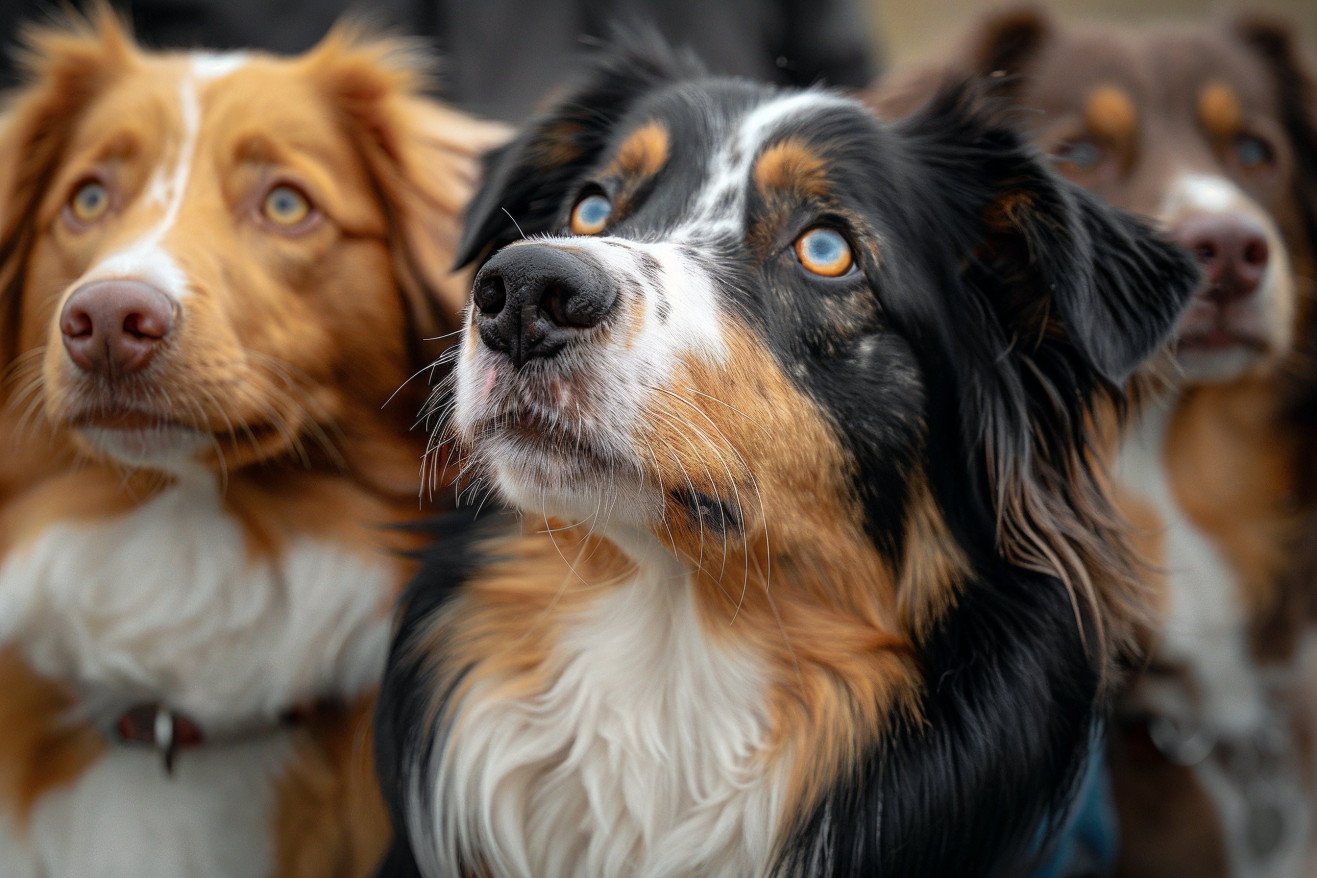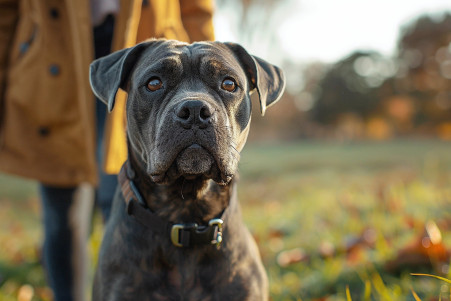Do Australian Shepherds Get Along With Other Dogs? Understanding the Breed
21 April 2024 • Updated 21 April 2024

Australian Shepherds are known for being friendly, high-energy herding dogs, but it's important for potential dog owners to understand the potential for aggression in the breed. While Australian Shepherds are not aggressive by nature, they can become aggressive if not socialized and trained properly as puppies. However, with the right training and positive reinforcement, these smart herding dogs can become loving and loyal members of the family.
We will explore a number of different studies conducted by animal behaviorists, trainers, and other experts to better understand the most common causes of aggression in Australian Shepherds and how to avoid and address it. By learning about the breed's background, natural instincts, and training requirements, you can ensure that your Australian Shepherd will be a well-behaved member of your family for years to come. It just takes a little bit of knowledge and responsibility to help this adaptable and loyal breed reach its full potential.
Do Australian Shepherds Get Along With Other Dogs?
The Importance of Early Socialization and Training
Puppy socialization is especially important for Australian Shepherds, who can become standoffish around strangers if not properly socialized, notes Australian Shepherd Lovers. Introducing puppies to different sounds, people, animals, and experiences early on will help them build a more confident and flexible personality. And as Whole Dog Journal points out, ongoing socialization once a puppy is brought home is important for reinforcing good habits.
Basic obedience training and the establishment of house rules are also important for controlling the breed's high intelligence and energy levels, explains Dr. Peggy Timm of the Lake Forest Animal Clinic in an interview with the American Kennel Club. It's best to use positive reinforcement training methods consistently with Australian Shepherds to avoid aggression and ensure a strong bond with their owners. With proper socialization and training from an early age, owners can help determine the breed's personality and prevent any potential aggression from developing.
Understanding the Breed's Instincts and Potential Triggers
Australian Shepherds have strong herding instincts and a high prey drive, which can lead to aggression, according to Lombard Veterinary Hospital. Their protective nature and tendency to exhibit guardian behaviors can also result in aggression if not properly controlled, according to AussieBase.
The lack of mental and physical exercise can result in boredom and potential behavioral problems in this intelligent and active breed, according to the South Texas Aussie Rescue. In addition, certain health issues, including joint dysplasia, epilepsy, and thyroid problems, can lead to aggression, according to Lombard Veterinary Hospital.
Responsible breeding and ensuring that any medical problems are treated are key to dealing with aggression in Australian Shepherds. By learning about the breed's instincts and potential triggers, owners can be more proactive in preventing and dealing with aggression.
Coping With Aggression: Training and Techniques
The AKC stresses the importance of making sure Australian Shepherds get enough physical and mental exercise to keep their energy levels in check and prevent aggression that stems from boredom. They also recommend positive reinforcement training, which involves rewarding good behavior, to help reduce aggression and build a better relationship with the dog. This is also mentioned by PetHelpful.
Veterinarians and animal behaviorists can help pet owners determine and treat any medical or behavioral causes of aggression, says Vetericyn. PetHelpful explains that leashes, crates, and other training tools can be used to control aggressive behavior in certain situations.
The AKC says that when dealing with an Australian Shepherd that's showing signs of aggression, it's important to be patient and to maintain a consistent, gentle, and firm hand. By making sure to meet the breed's needs and using positive reinforcement, pet owners can make sure that their Australian Shepherds don't become aggressive.
How to Choose a Well-Balanced Australian Shepherd Puppy
According to Legacy Ranch, it is important to choose a breeder that is reputable if you want a healthy, well-socialized Australian Shepherd puppy. This is because breeders that focus on working lines or puppies that are specifically bred for herding may not be the best choice for the average family unless you are planning to use the dog for herding, as noted by Karen Shanley.
When choosing a puppy, make sure to watch the puppies and their interactions with their littermates and people to make sure you don't see any signs of aggression or fear, as suggested by the Western Australian Shepherd Rescue. Also, ask the breeder about their socialization and training methods to make sure that the puppies have been properly exposed and handled.
You will also need to make sure that you continue to socialize and train your puppy after you bring them home to make sure that they continue to exhibit the behaviors that you want. With the right research and dedication, you can find an Australian Shepherd that will make a well-rounded, well-behaved pet.
Conclusion: A Holistic Approach for a Well-Balanced Pet
Australian Shepherds are intelligent, energetic, and loyal dogs that can be wonderful family pets with the right care and training. Early socialization, ongoing obedience training, and mental and physical exercise are all important for preventing aggression.
Knowing the breed's natural instincts and potential triggers, as well as addressing any medical concerns, can help you manage aggression. Responsible pet care, patience, and a positive attitude are key to helping this adaptable and devoted breed reach its full potential. With the right upbringing and dedication, Australian Shepherds can be a well-balanced, well-behaved pet.


